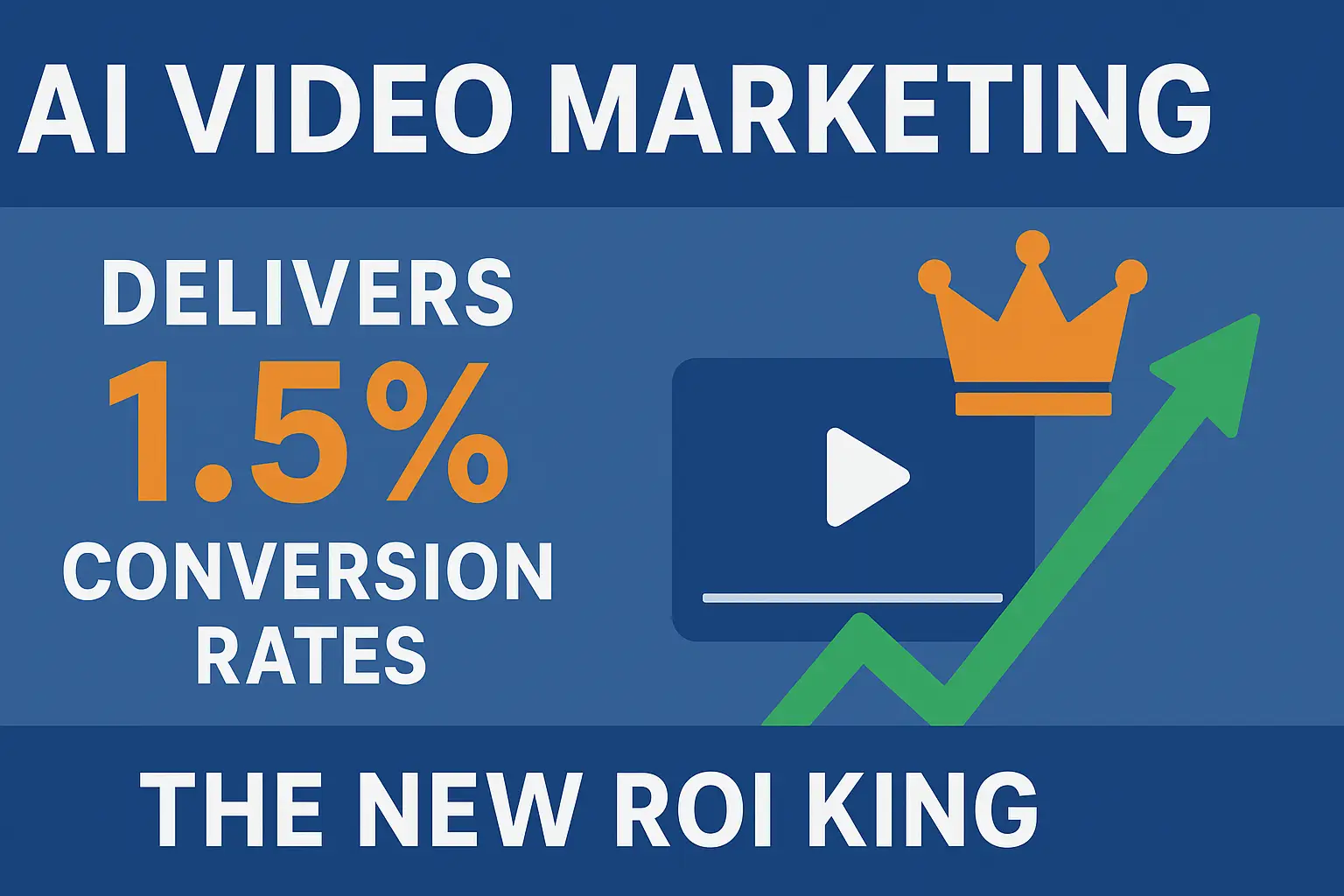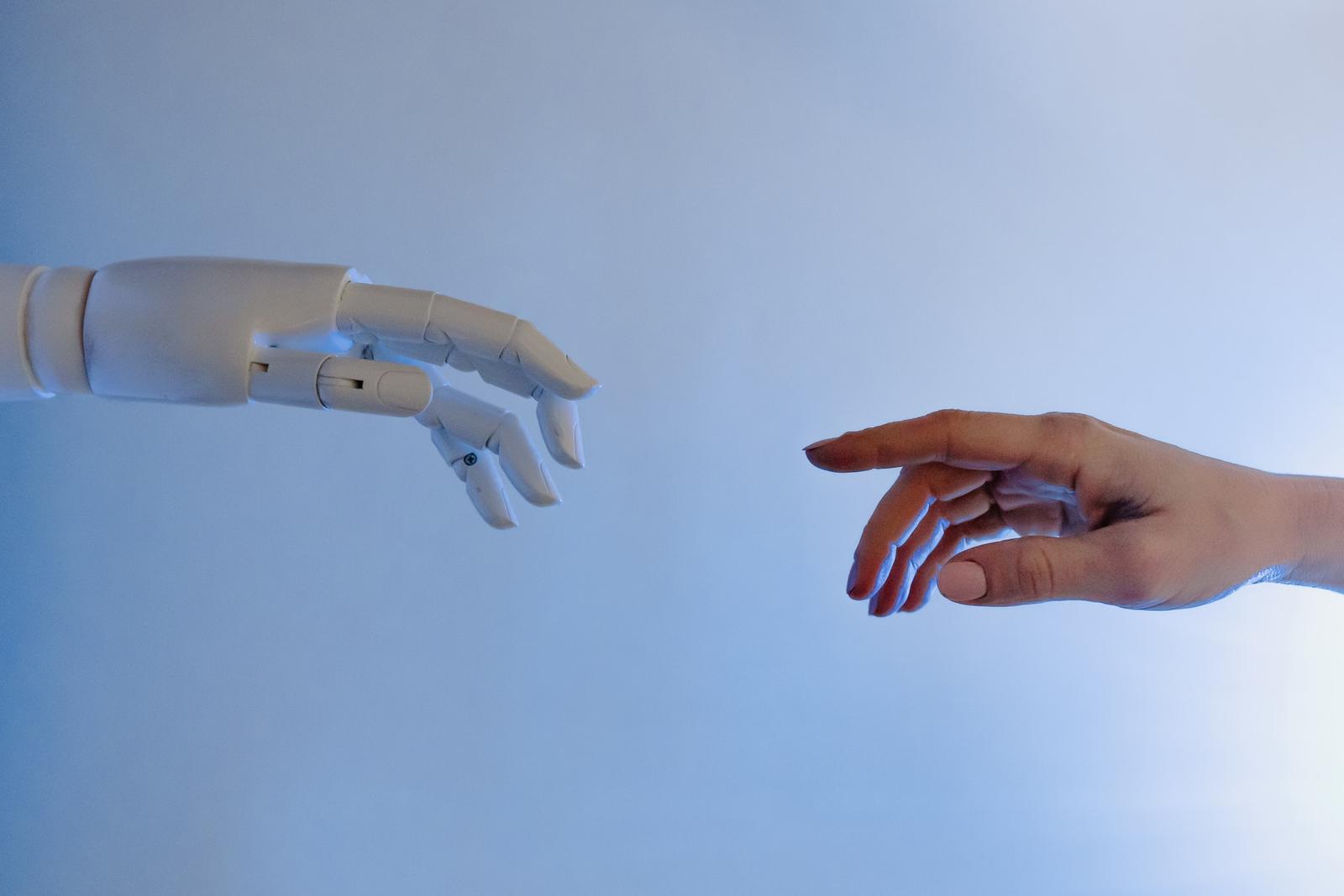The Marketing ROI Reality Check That’s Reshaping Ecommerce Strategy
What if spending $1,500 on marketing could generate 100,000 views and a 1.5% conversion rate in just one week? A recent discussion on r/ecommerce revealed a fascinating case study that’s making waves across digital marketing circles. An ecommerce professional shared their stark comparison: traditional influencer marketing campaigns that consumed $1,500 over a month with minimal returns, versus a single AI-generated video that achieved remarkable engagement and conversion metrics.
This real-world scenario isn’t an isolated incident—it’s indicative of a broader shift occurring in digital marketing where AI video marketing is demonstrating superior ROI compared to traditional influencer partnerships. For ecommerce managers and marketing professionals, this represents both a significant opportunity and a critical strategic decision point.
The data speaks volumes about changing consumer behavior and the effectiveness of emerging marketing technologies. Let’s examine why AI-generated video content is becoming the conversion rate optimization tool that’s reshaping customer acquisition strategies.
The Current State of Influencer Marketing ROI
Traditional Influencer Marketing Challenges
The influencer marketing landscape has become increasingly saturated, with brands competing for attention from the same pool of creators and audiences. Recent industry analysis reveals several critical challenges affecting ROI:
Rising Costs and Diminishing Returns: Influencer rates have increased by an average of 44% over the past two years, while engagement rates continue to decline. The average engagement rate for influencer posts has dropped to 1.33% across all platforms, making it increasingly difficult to justify campaign investments.
Attribution Complexity: Measuring the true impact of influencer campaigns remains challenging. Unlike AI-generated video content with clear analytics and tracking capabilities, influencer marketing often relies on promo codes or indirect attribution methods that underrepresent actual conversion impact.
Content Ownership and Control: Brands invest heavily in influencer content but often lose control over messaging, timing, and distribution. This lack of control can lead to inconsistent brand representation and missed optimization opportunities.
The Shifting Consumer Landscape
Modern consumers, particularly Gen Z and younger millennials, have developed sophisticated filters for traditional advertising content. They’re increasingly skeptical of obvious sponsored posts and influencer recommendations, leading to what marketing researchers call “influence fatigue.”
Simultaneously, these same consumers are embracing authentic, educational, and entertaining video content that provides genuine value. This shift explains why AI-generated videos, when crafted strategically, can achieve higher engagement and conversion rates than traditional influencer content.
AI Video Marketing: The Data-Driven Alternative
Conversion Rate Optimization Through AI
The Reddit case study mentioned a 1.5% conversion rate from AI-generated video content—a metric that significantly outperforms industry averages. To put this in perspective, the average ecommerce conversion rate across all industries is approximately 2.17%, making a 1.5% conversion rate from a single video campaign exceptionally strong.
Cost Efficiency Analysis: When comparing cost per conversion, AI video marketing presents compelling advantages:
- Traditional Influencer Campaign: $1,500 investment with minimal conversions over 30 days
- AI-Generated Video: Low production costs with 100,000 views and strong conversion performance in 7 days
This represents a cost-per-view reduction of over 90% while maintaining superior engagement metrics.
Scalability and Testing Advantages
AI video marketing enables rapid iteration and optimization that’s impossible with traditional influencer partnerships. Brands can:
A/B Test Multiple Variations: Create dozens of video variations to test different messaging, visuals, and calls-to-action simultaneously.
Real-Time Optimization: Adjust targeting, creative elements, and distribution strategies based on immediate performance data.
Seasonal and Trend Adaptation: Quickly adapt content to trending topics, seasonal events, or market changes without renegotiating influencer contracts.
Quality and Consistency Control
Unlike influencer partnerships where content quality and brand alignment can vary, AI video marketing provides consistent brand representation while maintaining the authenticity that drives conversions.
Strategic Implementation for Ecommerce Success
Building an AI Video Marketing Framework
Content Strategy Development: Successful AI video marketing requires strategic planning that goes beyond simple product showcases. The most effective campaigns combine educational content, entertainment value, and subtle product integration.
Platform-Specific Optimization: Different social media platforms require distinct video formats and messaging approaches. AI tools enable rapid adaptation of core content for Instagram Reels, TikTok, YouTube Shorts, and emerging platforms.
Customer Journey Integration: Discover how leading retailers integrate video content across the customer journey to maximize conversion opportunities and build lasting customer relationships.
Measuring Success Beyond Views
While view counts provide valuable metrics, conversion rate optimization requires deeper analytics:
Engagement Quality Metrics: Track completion rates, replay frequency, and interaction types to understand content effectiveness.
Attribution Modeling: Implement proper attribution models to understand how AI video content contributes to overall conversion paths.
Customer Lifetime Value Impact: Measure how video-acquired customers compare to those from other channels in terms of repeat purchases and loyalty.
Integration with Conversational Commerce
The most successful AI video marketing campaigns seamlessly integrate with conversational commerce capabilities. When viewers can immediately engage with products through interactive video experiences, conversion rates improve dramatically.
Explore innovative video commerce solutions that combine AI-generated content with real-time customer interaction capabilities, creating shopping experiences that convert browsers into buyers.
Future Outlook and Recommendations
Industry Evolution Predictions
The marketing landscape is rapidly evolving toward AI-powered content creation and distribution. Industry experts predict that by 2026, over 60% of ecommerce video content will incorporate AI generation or enhancement technologies.
Emerging Technologies: Advanced AI platforms are introducing features like personalized video creation, real-time customer interaction, and dynamic product placement that will further improve conversion rates.
Platform Integration: Major social media platforms are investing heavily in AI content creation tools and shopping integrations, making it easier for brands to create and distribute high-converting video content.
Actionable Implementation Strategy
Phase 1: Testing and Learning (Month 1-2)
- Implement small-scale AI video campaigns to establish baseline performance metrics
- Test different creative approaches and targeting strategies
- Establish measurement frameworks and attribution models
Phase 2: Scale and Optimize (Month 3-6)
- Expand successful creative formats and targeting approaches
- Integrate video content with existing customer acquisition funnels
- Develop platform-specific content strategies
Phase 3: Advanced Integration (Month 6+)
- Implement conversational commerce capabilities within video content
- Develop personalized video creation workflows
- Build comprehensive omnichannel video marketing systems
Budget Allocation Recommendations
Based on current market trends and performance data, ecommerce brands should consider reallocating 40-60% of traditional influencer marketing budgets toward AI video marketing initiatives. This shift enables better ROI tracking, improved conversion rates, and more scalable growth strategies.
The Competitive Advantage of Early Adoption
Brands that embrace AI video marketing now are positioning themselves ahead of competitors who remain locked into traditional influencer marketing approaches. The technology curve is steep, and early adopters will establish market advantages that become increasingly difficult for competitors to overcome.
The Reddit case study that sparked this analysis demonstrates a fundamental truth about modern ecommerce: data-driven marketing approaches consistently outperform relationship-based strategies when it comes to measurable business outcomes.
For ecommerce managers and marketing professionals, the choice is becoming clear. AI video marketing offers superior ROI, better conversion rates, and more scalable growth opportunities than traditional influencer partnerships. The question isn’t whether to adopt these technologies, but how quickly you can implement them effectively.
Live commerce and conversational shopping experiences represent the next evolution of AI video marketing, where interactive content drives immediate purchasing decisions. Platforms that combine AI-generated video content with real-time customer engagement are seeing conversion rates that make traditional marketing channels look obsolete.
Book Your Live Demo to discover how AI-powered video commerce can transform your customer acquisition strategy and deliver the ROI results your business needs to scale efficiently.



